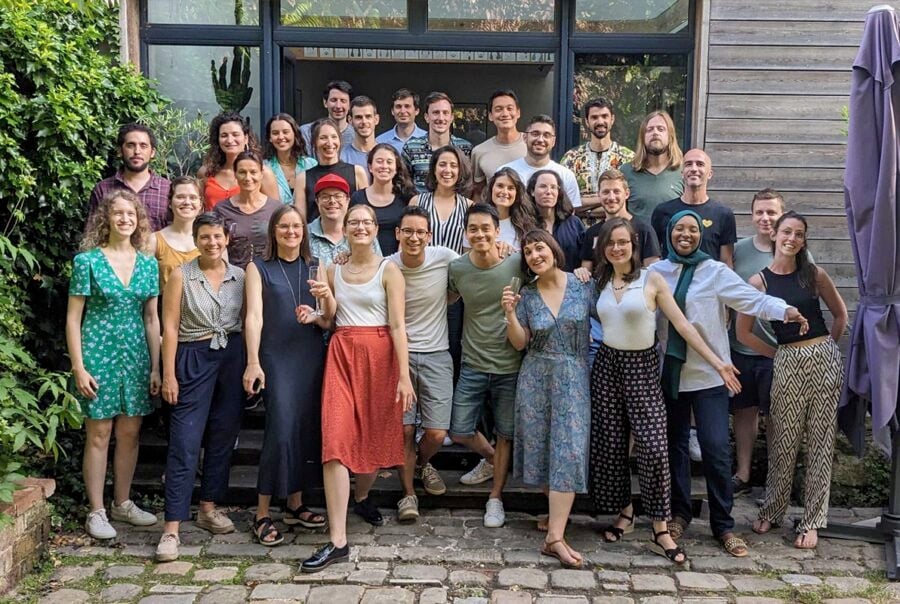The Trouble With Buildings
Why we invested in Tracktor
One of the most common things usually heard about buildings is the lack thereof – especially in housing, where “housing shortage” or “housing shortfall” are still as popular Google keywords as they were in 2004. Nothing new: newspapers dated as far back as 1880 dismayed at a housing crisis in Paris that led to many people being forced out of their homes. There is, it seems, trouble with building buildings.
Few industries are as entrenched in the human imagination as construction. Humans marvel at what they have built; from cities to bridges to temples to football stadiums and, sometimes, plain old housing. Of course, bridges attributed to Caesar have not been built by Caesar – in fact, it’s probable Caesar did not have much to do there at all. Construction as a process is extremely complex and involve levels of collaboration that are beyond what is necessary in many other industries.
Not all buildings are masterpieces, and many reasons explain why houses are lacking – but what is certain is that one of the ways to build more is to build faster. Easier said than done.
This is what set Idir and Julien on their journey in 2016, when they realized how much time was wasted on processes in the construction sector. To improve the efficiency of construction, they targeted one of the biggest pain points of the industry – construction equipment rental. Their solution? A marketplace to match general contractors and subcontractors with providers offering construction equipment for rent – fully online.
It is a truth universally acknowledged that construction is a sector where technology adoption is slow. That is not due to the size of the market – the construction industry stands for 8% of GDP in France – nor to a generational divide – millennials will make up a large part of the workforce in the coming years and decades. In fact, sheer size probably explains why the construction industry is so resistant to change. Millions of general contractors, subcontractors, architects, consultants, surveyors, and workers interact every day in a web of entangled business relationships. The delay and inefficiencies of one affect many. The walls are late? Roofing needs to wait. The wrong machine was delivered? A day is lost. Roman coins are found? It’s all stopped. (Thankfully, this mostly happens in Rome.)
Industry participants deal with problems the way they’ve always done. Pen, paper, and improvised solutions. As in many fragmented markets, consolidation created industry behemoths that acted as one-stop-shops. Kiloutou and Loxam, the French market leaders, have enjoyed a comfortable duopoly that allowed them to pursue aggressive M&A strategies with local equipment owners. But the complacency of some is the opportunity of others.
Idir and Julien come across as different, and indeed they are. Idir is a calm, charismatic CEO with massive ambitions for Tracktor. Julien is a determined and well-rounded COO who gets things done and is seemingly aware of every single detail of operations. Both are passionate about the opportunity to build a digital market leader in a €100bn global market.
It is no small feat, as creating a marketplace of construction equipment rental is a challenging endeavour. Users ranging from excavator suppliers to bungalow owners need their own workflows reflected in the platform. The painful problems of markets characterized by many participants and low margins – lack of trust and unpaid bills – need to be tackled. Since users are always on the move, and have little patience for complicated user journeys, there is a need for an online app and a clear user experience. A special customer support division is required for customers and partners who expect to be called on the phone and won’t ever talk to a chatbot. Finally, for users to give up on their current ways, it needs to be compelling and save time.
Tracktor has all those things and more. It is now the third biggest French construction equipment provider after only a few years of existence, and still has so much more value to add and features to build in order to make customer journeys even faster and more seamless. Customers laud the simplicity of the platform and visibility on price and dates. Suppliers love the accounting features and dashboard – and of course the access to new customers they did not know how to target before. Meanwhile, the market is growing – as construction processes complexify even further, the equation of rent vs. buy for equipment trends towards rent. The need to build is just as great as in 1880 if not greater.
B2B Marketplaces have historically grown slower than B2C marketplaces, because of the complexity of workflows and entrenched ways of users. COVID has provided a welcome boost to these marketplaces, who realized that they could grow exponentially by providing more than just transactional services. Integrating with partners to provide factoring solutions or insurance is one of these avenues to grow. Signing recurring contracts and taking ownership of the customer relationship is another. Tracktor has had great early successes in both.
And France is only the beginning – though it is a great place to start. Different European countries offer strong home markets depending on the industry, and France is a healthy market for construction. It is the seventh country in the world in terms of persons employed in construction, and France builds more new homes than any other European country (though the housing shortfall still persists). This points to France as a great place to launch a major European player in Construction Tech.
At AVP, we actively cover Proptech and Construction tech, both in Europe and in the US, and we are happy and proud that Tracktor chose us for this Series A investment. We hope that this first investment in Construction technology paves the way for many others, as digital solutions offer a fantastic opportunity to build faster, greener, better.
So what is the trouble with buildings? They need building. You are building? Call Tracktor.






